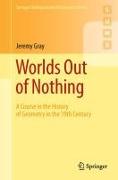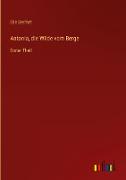Worlds Out of Nothing
BücherAngebote / Angebote:
Worlds Out of Nothing is the first book to provide a course on the history of geometry in the 19th century. Based on the latest historical research, the book is aimed primarily at undergraduate and graduate students in mathematics but will also appeal to the reader with a general interest in the history of mathematics. Emphasis is placed on understanding the historical significance of the new mathematics: Why was it done? How - if at all - was it appreciated? What new questions did it generate?
Topics covered in the first part of the book are projective geometry, especially the concept of duality, and non-Euclidean geometry. The book then moves on to the study of the singular points of algebraic curves (Plücker’s equations) and their role in resolving a paradox in the theory of duality, to Riemann’s work on differential geometry, and to Beltrami’s role in successfully establishing non-Euclidean geometry as a rigorous mathematical subject. The final part of the book considers how projective geometry, as exemplified by Klein’s Erlangen Program, rose to prominence, and looks at Poincaré’s ideas about non-Euclidean geometry and their physical and philosophical significance. It then concludes with discussions on geometry and formalism, examining the Italian contribution and Hilbert’s Foundations of Geometry, geometry and physics, with a look at some of Einstein’s ideas, and geometry and truth.
Three chapters are devoted to writing and assessing work in the history of mathematics, with examples of sample questions in the subject, advice on how to write essays, and comments on what instructors should be looking for.
Folgt in ca. 15 Arbeitstagen




